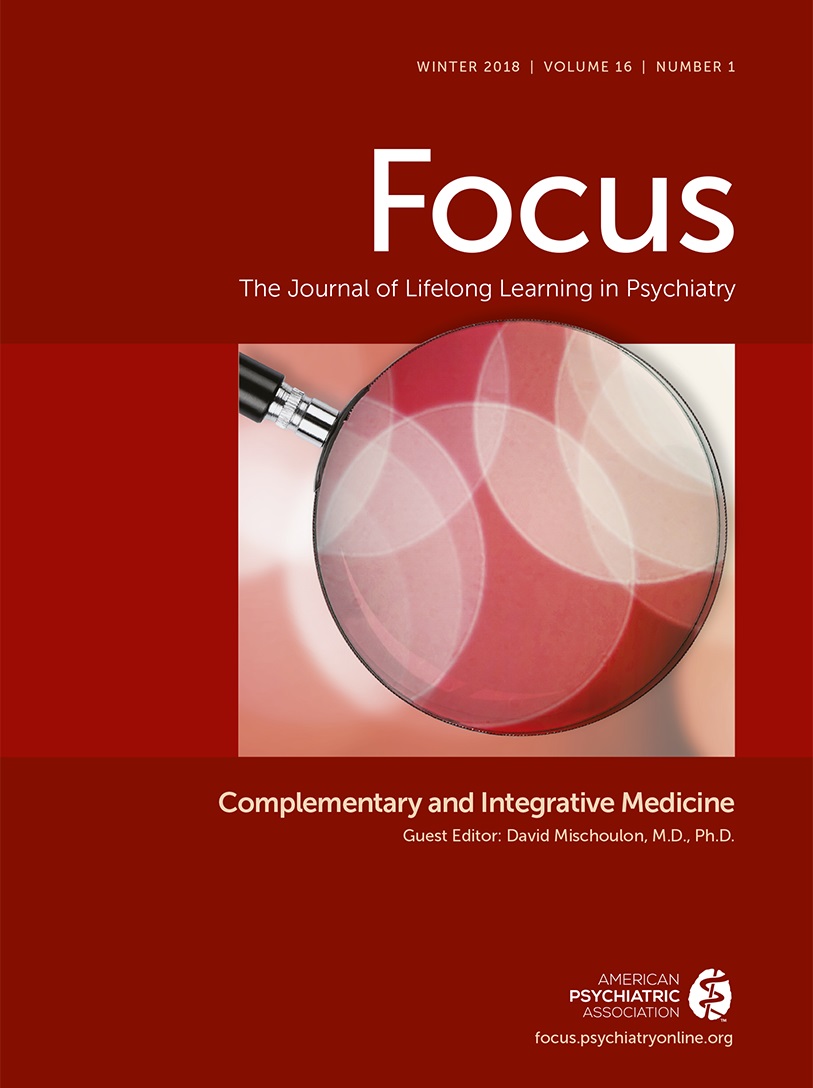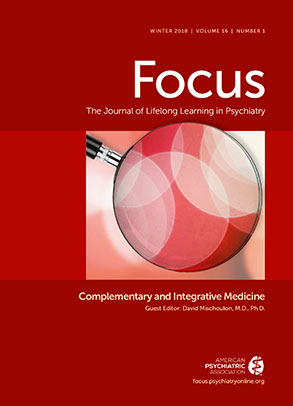It is truly a pleasure and an honor to serve as guest editor of this issue of Focus. Complementary and integrative (or alternative) medicine (CAM), despite its worldwide popularity for millennia, remains largely a mystery, particularly in the United States, where its use has increased only in the past quarter century. Nowadays, many people turn to complementary therapies for various conditions, and psychiatric symptoms represent one of the most common reasons for the use of CAM. Yet, despite the growing popularity of complementary therapies, their efficacy and safety are not as well characterized compared with registered medications, largely because of relatively fewer large-scale controlled clinical trials. Likewise, education about CAM during medical training is scanty, both at graduate and postgraduate training levels. Important questions remain unanswered, such as whether these treatments are more effective than placebos or are comparable to therapies approved by the U.S. Food and Drug Administration, as well as whether they may harbor any risks of short-or long-term harm. For this reason, many clinicians are reluctant to recommend CAM, and many consumers experience ambivalence about alternative therapies. The growth of the Internet has been both a curse and a blessing, in that consumers and clinicians can readily seek and find information about these therapies at the click of a mouse. Unfortunately, they are soon confronted with contradictory evidence of variable quality and with frequently biased reporting, which can leave readers feeling even less informed than before they started their online research.
This issue of Focus highlights a selection of some of the more commonly used and better studied CAM interventions that have applications in psychiatry, as well as some up-and-coming ones. The articles are written by leading clinician-scientists whose research interests have focused in large part on different CAM interventions in psychiatry. In this issue, I have sought to present a wide selection of therapies to convey the breadth of possibilities that CAM offers in the world of psychiatry. I will present a review of several popular herbal and natural products for mood, anxiety, and cognition. Nyer and colleagues provide a synthesis of yoga as an integrative treatment, and Dording and Sangermano provide a review of natural remedies that can be used to manage female sexual dysfunction. Rapaport and colleagues analyze the clinical effects and potential mechanisms of massage therapy in psychiatric disorders. Shapero and colleagues examine the use of mindfulness-based cognitive therapy and meditation in psychiatry. Yeung and colleagues review applications of Tai-Chi and Qi Gong for mood regulation. Finally, Varteresian and Lavretsky provide an overall synthesis of where and how CAM may fit into standard medical care.
The goal of these articles collectively is to provide a good overview of CAM therapies, with a practical focus that will allow medical practitioners to make educated decisions in the clinical setting. For example, patients may ask the clinician for an opinion about some of these therapies, either because they are considering trying one or are already using them and may have second thoughts or seek reassurance. The clinician who reads this issue will be able to answer a patient's questions in a practical way and will feel confident in the clinical judgment that they will develop based on the information put forth in this issue. Finally, I hope that this issue will encourage clinicians to pursue further education in this exciting area of psychiatry. The more we learn about the mysteries of CAM, the more effectively we will be able to guide our patients on the path to healing.

